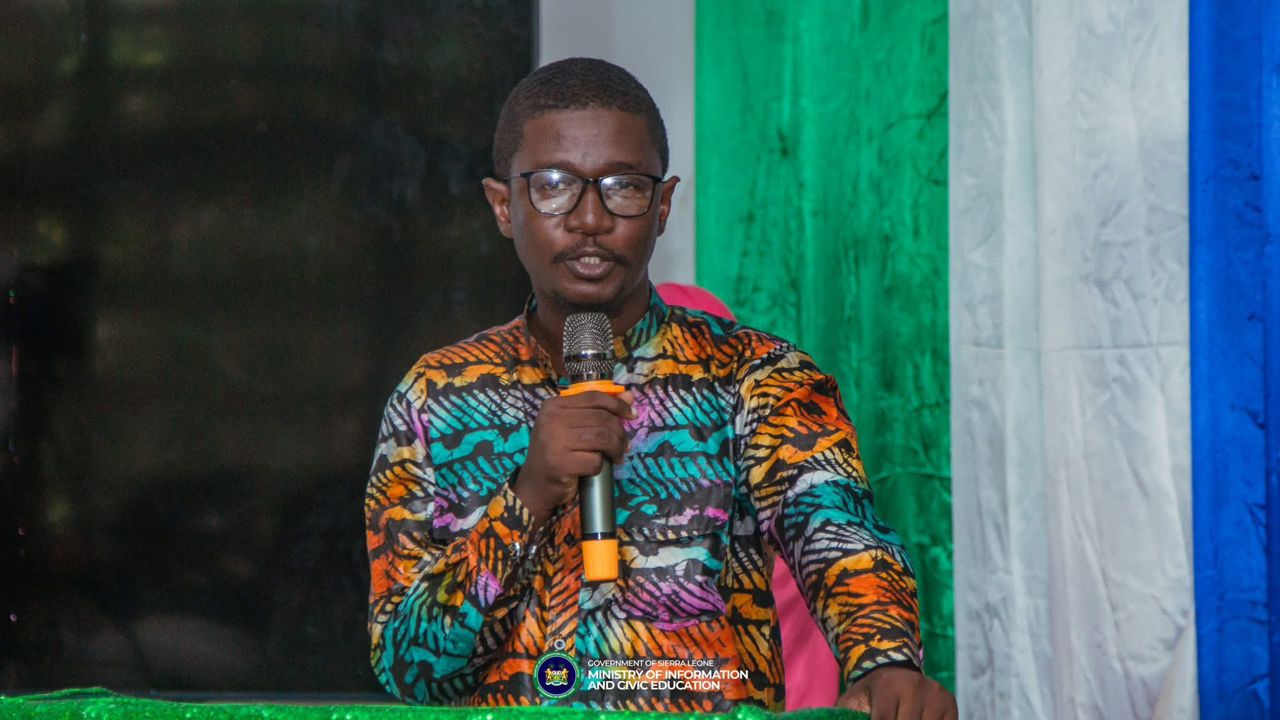By Mohamed Jaward Nyallay
At 10 a.m. on a Tuesday, the children in my building are racing up and down the stairs. My neighbour sighs—she had hoped for some quiet after schools reopened. Instead, classes were delayed by a week when the Sierra Leone Teachers Union (SLTU) announced a nationwide strike on the eve of the new school year.
The strike brought important issues to the surface: delayed school subsidy payments and the status of teachers affected by a payroll verification exercise by the Teaching Service Commission. Over the past week, the government has acted decisively. It cleared subsidy arrears and reinstated thousands of teachers while continuing the verification process to protect the system’s integrity.
This exercise is not about punishment but protection. Every leone saved by closing payroll loopholes is reinvested into improving teacher welfare and strengthening the education system itself.
Unfortunately, what should have been a moment of collective problem-solving became politicized. Some commentators framed the strike as a referendum on President Julius Maada Bio’s flagship Free Quality School Education (FQSE) programme—the boldest and most transformative social investment Sierra Leone has undertaken since independence. This framing is misplaced.
A Bold Vision That Delivered
When President Bio declared in 2018 that every child in Sierra Leone would have access to free quality school education, many dismissed it as overly ambitious. Yet, just months later, the programme was launched. Today—seven years on—the results are undeniable.
Over one million new children have entered our classrooms. More girls are completing school than at any point in our history. National exam pass rates are improving, and dropout rates are declining. Sierra Leone now consistently performs better across global education indicators.
The very success of FQSE has created new demands: more classrooms, more trained teachers, and greater capacity in higher education to accommodate ambitious graduates. These are not signs of failure. They are the growing pains of progress, reflecting how far we’ve come and how much more we can achieve as a nation.
Investing in Teachers, Investing in the Future
At the heart of FQSE are teachers—the dedicated professionals who bring classrooms to life. Since 2018, the government has prioritized teacher welfare and professional growth like never before:
– Salary Improvements: Teachers have received multiple salary increments, including a 30% increase between 2018 and 2021 and a staged 45% increase beginning in 2023, alongside the introduction of an additional 10% allowance.
– Recruitment: Over 10,000 new teachers were employed between 2018 and 2021, and another 2,000 teachers are scheduled for recruitment in 2025, directly addressing the growing demand for quality teaching.
– Promotions: Thousands of teachers have been reassessed and promoted to their correct salary scales, with 3,043 more teachers scheduled for promotion in 2025.
– Training and Recognition: The government has significantly invested in teacher training while introducing the Presidential National Best Teacher Award to celebrate excellence and motivate educators nationwide.
These investments demonstrate a clear and sustained commitment: Sierra Leone is building a teaching workforce that is empowered, respected, and equipped to drive our country’s development.
A New Conversation About Education
As the Minister of Information and Civic Education, Chernor Bah, recently observed, Sierra Leone’s education conversation has fundamentally shifted.
“A decade ago, teachers would go for months without salaries,” he said.
“Today, we are debating how to build on progress, not how to fix neglect.”
This shift is profound. Our national dialogue has moved from one of survival and neglect to one of growth and ambition. The challenges we face today—managing rapid expansion, improving facilities, and supporting teachers—are challenges born out of success, not failure.
Commitment Backed by Numbers
National priorities are best measured in budgets. Since 2018, Sierra Leone has consistently allocated around 22% of its national budget to education—one of the highest per capita investments in Africa.
While many nations are cutting back on education spending, Sierra Leone continues to expand its financial commitment year after year. Whether you support or criticize President Bio, these numbers are undeniable: his commitment to education is rock solid.
This commitment has also reshaped public expectations. At a recent Civic Day Series event in Kambia, parents and students passionately pressed for FQSE to be enshrined as a constitutional right. Across the country, the message is clear: Sierra Leoneans want FQSE to stay.
The Road Ahead
No programme is without challenges. As FQSE continues to grow, there will be ongoing demands for better infrastructure, more learning materials, and stronger support systems for teachers. These challenges are a natural part of building something transformative.
Each obstacle we overcome is an investment in the future—a future where every child, regardless of background, has access to quality education and the tools to succeed.
When schools are open and teachers are supported, children like those in my building will be in class, learning and dreaming, while my neighbour finally enjoys her quiet mornings.
About the Author:
Mohamed Jaward Nyallay is a member of the Strategic Communications Unit at the Min
istry of Information and Civic Education.








